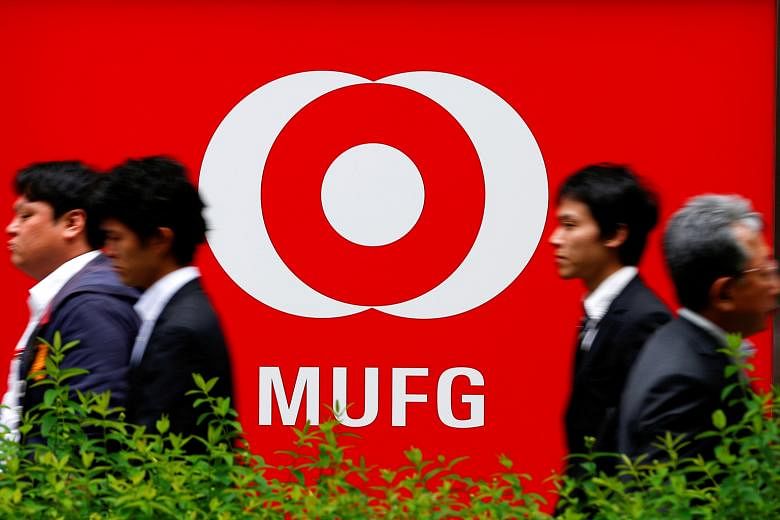NEW YORK • Japan's largest bank, Mitsubishi UFJ Financial Group (MUFG), has been penalised by the state of New York for letting countries on sanction lists like Iran and Myanmar route payments through its systems, but a current inquiry is more serious: It is a federal case involving North Korea.
MUFG was subpoenaed by federal prosecutors in New York City late last year as it was locked in a court fight with the New York Department of Financial Services, according to two people who were briefed on the investigation but not permitted to speak publicly. That litigation involves the department's attempts to punish the bank for breaking anti-money-laundering rules.
The subpoena was issued after the state said in a court filing that the bank had intentionally ignored an internal filter designed to keep it from doing business with companies and people on international sanctions lists.
The Department of Financial Services said the bank had also failed to set up a system for checking the identities of some of its Chinese customers doing business along the North Korean border, a hot spot for money laundering.
It was not clear whether prosecutors had found any evidence that North Koreans laundered money through the bank, but the holes in the system meant to trace such transactions were a chief concern of the department.
The federal investigation arose from the state's latest legal confrontation with the bank, which was called Bank of Tokyo-Mitsubishi UFJ until this year.
In 2013, the Department of Financial Services fined the bank US$250 million (S$343 million) for removing information from its records about transactions that involved parties in countries like Iran and Myanmar. A year later, the state fined the bank another US$315 million for trying to hide information about that misconduct.
MUFG reclassified itself as a national bank a year ago and says the state regulatory agency no longer has the authority to punish it.
According to the state regulator, the bank has long used an electronic screening system, HotScan, to sort through its financial transactions for signs of involvement by people or countries barred from doing business with the United States.
New York has claimed the bank knew - but never disclosed - that for 10 years, HotScan occasionally cut off information about the countries where certain transactions originated.
The state said the system also did not allow users in some locations to enter North Korea as a country involved in the transaction, which meant that the transaction would not be flagged for closer scrutiny.
The bank told New York in 2016 that it had found more than 30 branches around the world where these glitches existed, according to the court filing.
MUFG's new federal overseers said in a regulatory filing that the bank was working to fix its alert systems.
NYTIMES

